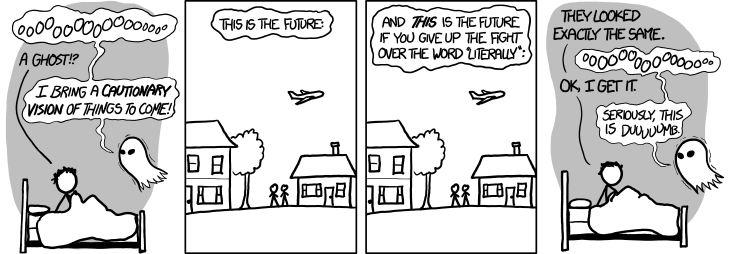The short answer is: yes, you have an accent. We all do, even if most people perceive the accent as “neutral.” When most people ask if someone has an accent, what they mean is “do they have a stigmatized accent?” or “do they have a different accent?” Remember the discussion of “marked” speech in my post on women’s language? Different accents and different dialects can be “marked” in the same way that women are “marked,” compared to men. If you’re from Michigan or Ohio, you’re much more likely to notice someone’s accent if they’re from, say, the South, or the UK, than you are to notice someone who speaks like you or someone who speaks like they’re on TV.
Whether or not you think you have an accent, chances are you have plenty of opinions on the subject. Watch this video of linguist Dennis Preston, asking passengers on a train what they think of different American accents.
These opinions, among other things, constitute language ideology. We have very strong ideas about what having a certain accent means. Think about characters with Southern accents in TV shows and movies where there aren’t any other Southern characters*. Generally, that character is not very bright, but is probably very friendly and well-meaning. This sort of stereotyping is not rare, and most marked accents have them. Ever notice how many movie villains are British? Ever notice how almost none of those villains are poor?
Language ideology can not only shape our opinions of fictional characters, but they can also affect what we think of real people we interact with, and even our own language. Southerners often say that they don’t speak English well because their accent is so stigmatized, and many Southerners who move north modify their accents in order to avoid being stereotyped as unintelligent. A high-profile example of someone who has done this is Stephen Colbert, who grew up in South Carolina but lost his accent when he moved north to pursue a career in television.
The ideologies people hold about their language can even affect what they can hear. An anecdote: in college, I tutored athletes in linguistics. I tutored one player from Baltimore; a big city, not too far South (although, below the Mason-Dixon line). He considered his dialect to be fairly standard. People from that area do what linguists call “/l/-vocalization,” where they pronounced the L in words like “call” as a sound similar to “w”, so it comes out sounding like “caw.” Listen to this paragraph and focus on the words “call,” “small” and “will.” I decided to ask him if he heard the difference between the way he said the word “call” and the way I said “call.” I repeated “calllll” and cawww” over and over, and his response was always the same: “one is longer!” He couldn’t hear the difference between the two sounds even though his teammate from Chicago could hear them quite clearly. I tried this again with my mother, who also does l-vocalization because she is from rural Maryland. She has lived in the Midwest for 15 years – and she still couldn’t hear the difference, even though she gets a lot of comments on her accent.
I tried this experiment a second time, with a pair of football players from Texas and Michigan the following year. I knew that in Texas and in many parts of the South, there is no difference between the pronunciation of the words “pin” and “pen.” Linguists call this the pin-pen merger. I asked the Texan football player if he could hear the difference between “pin” and “pen” as I (a non-merged speaker) said them. He looked at me as if I was an idiot. He could hear the difference perfectly, even if in his native dialect he wouldn’t pronounce them differently. He had also recently told me that he “toned down” his accent when he was in Michigan. He got teased pretty constantly by his Michigander teammate for his accent, slight though he had made it. For this player, he knew the difference because he had to know the difference, or risk social consequences. The stigma of his Texas dialect made him very aware of his speech.
Because the player from Baltimore considered his dialect as “standard” and didn’t consider it much different from people on TV or from dialects in the Midwest, he didn’t pay any attention to the smaller differences in his dialect. The player from Texas, however, did know the differences between his dialect and the Michigan dialect he was immersed in, in part because he was constantly reminded of it by his teammates and friends. He also had some obvious insecurity about his speech, because of the ideologies surrounding Southern accents in our culture. Who wants to look like the dimwitted character in a TV show? No such stereotypes exist for speakers from Baltimore, so the first player could be blissfully unaware of the differences between his speech and mine.In this case, social realities of geographical stereotypes changed what sounds they could hear. If Southern varieties had more prestige, the Texan player may have been unaware of the difference between “pin” and “pen,” in the same way that people in the blue areas on the map above can’t hear the difference between “caught” and “cot.” Linguistic stereotypes literally affected what sounds they can hear.
*There is no one “Southern accent,” but TV shows, movies, and other media don’t generally make any distinctions between those accents.




